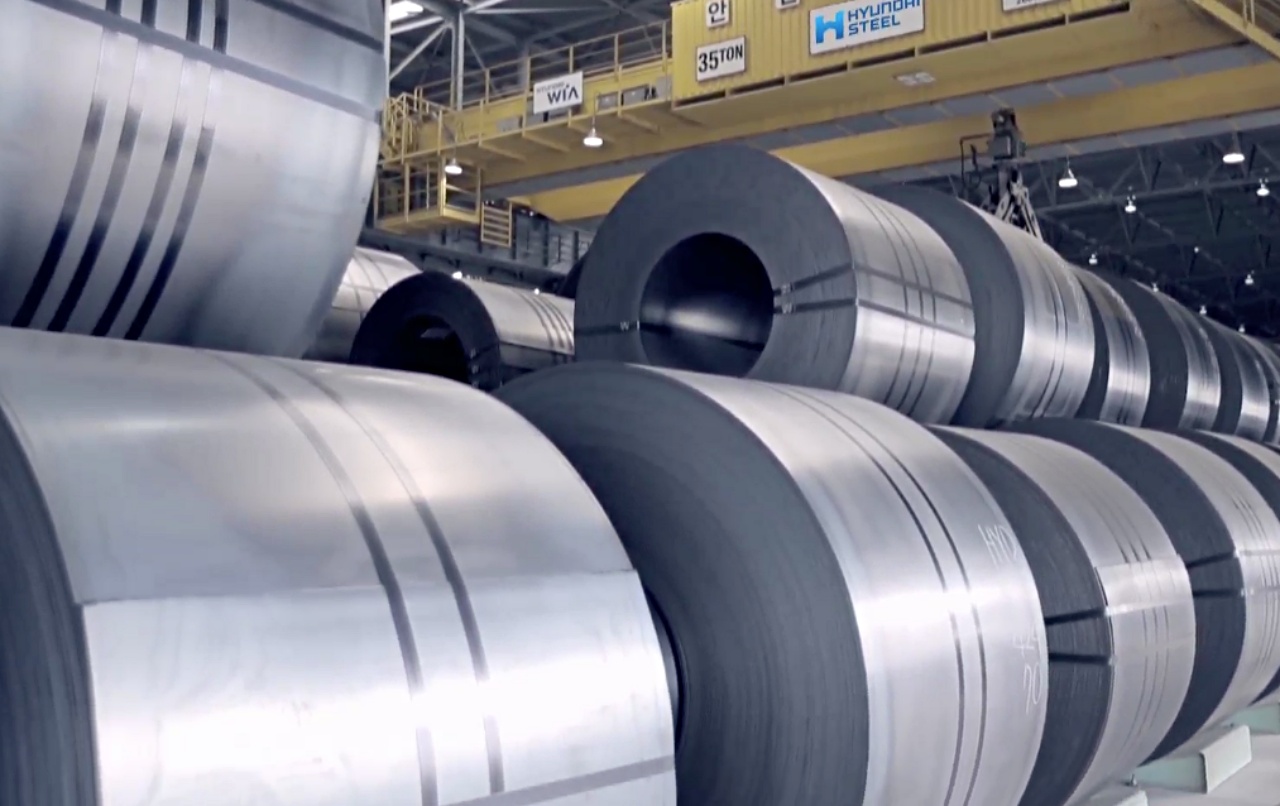U.S. President Donald Trump announced a 25% tariff on steel and aluminum imports, escalating trade tensions with Canada, Mexico, and the EU. If enacted in March, these duties could bring total tariffs on Canadian metals to 50%, a White House official confirmed.
Canada was reportedly unaware of the cumulative nature of the tariffs. Prime Minister Justin Trudeau called the move "unacceptable" and pledged a firm response. Mexico's Economy Minister Marcelo Ebrard labeled the decision "unfair" but did not confirm retaliatory measures.
The EU also condemned the tariffs, warning of "firm and proportionate countermeasures." European Commission President Ursula von der Leyen criticized the move, suggesting the bloc might reinstate its 2018 tariffs on U.S. goods like bourbon and motorcycles. The American Chamber of Commerce to the EU warned of job losses and supply chain disruptions.
The tariffs, effective March 12, eliminate previous exemptions for Canada, Brazil, Mexico, and South Korea. They are expected to impact millions of tons of metal imports. Trump's new "melted and poured" requirement aims to curb Chinese and Russian metal transshipment.
Businesses reliant on steel and aluminum, including Coca-Cola and Ford, anticipate higher costs and supply chain chaos. Ford CEO Jim Farley noted the tariffs have already caused "a lot of cost and a lot of chaos." The Coalition of American Metal Manufacturers and Users warned of lost business and stalled investments.
Canada supplied nearly 80% of U.S. primary aluminum in 2024, while steel imports made up 23% of U.S. consumption in 2023. Industry leaders fear retaliatory tariffs could further damage U.S. manufacturing and exports, exacerbating global trade tensions.



 Gold Prices Slide Below $5,000 as Strong Dollar and Central Bank Outlook Weigh on Metals
Gold Prices Slide Below $5,000 as Strong Dollar and Central Bank Outlook Weigh on Metals  Trump Signs Executive Order Threatening 25% Tariffs on Countries Trading With Iran
Trump Signs Executive Order Threatening 25% Tariffs on Countries Trading With Iran  Jack Lang Resigns as Head of Arab World Institute Amid Epstein Controversy
Jack Lang Resigns as Head of Arab World Institute Amid Epstein Controversy  Trump Signs “America First Arms Transfer Strategy” to Prioritize U.S. Weapons Sales
Trump Signs “America First Arms Transfer Strategy” to Prioritize U.S. Weapons Sales  Trump Allows Commercial Fishing in Protected New England Waters
Trump Allows Commercial Fishing in Protected New England Waters  India–U.S. Interim Trade Pact Cuts Auto Tariffs but Leaves Tesla Out
India–U.S. Interim Trade Pact Cuts Auto Tariffs but Leaves Tesla Out  South Korea Assures U.S. on Trade Deal Commitments Amid Tariff Concerns
South Korea Assures U.S. on Trade Deal Commitments Amid Tariff Concerns  U.S. to Begin Paying UN Dues as Financial Crisis Spurs Push for Reforms
U.S. to Begin Paying UN Dues as Financial Crisis Spurs Push for Reforms  Trump Backs Nexstar–Tegna Merger Amid Shifting U.S. Media Landscape
Trump Backs Nexstar–Tegna Merger Amid Shifting U.S. Media Landscape  China Warns US Arms Sales to Taiwan Could Disrupt Trump’s Planned Visit
China Warns US Arms Sales to Taiwan Could Disrupt Trump’s Planned Visit  U.S. Stock Futures Slide as Tech Rout Deepens on Amazon Capex Shock
U.S. Stock Futures Slide as Tech Rout Deepens on Amazon Capex Shock  Dow Hits 50,000 as U.S. Stocks Stage Strong Rebound Amid AI Volatility
Dow Hits 50,000 as U.S. Stocks Stage Strong Rebound Amid AI Volatility  China Extends Gold Buying Streak as Reserves Surge Despite Volatile Prices
China Extends Gold Buying Streak as Reserves Surge Despite Volatile Prices  TrumpRx.gov Highlights GLP-1 Drug Discounts but Offers Limited Savings for Most Americans
TrumpRx.gov Highlights GLP-1 Drug Discounts but Offers Limited Savings for Most Americans  Thailand Inflation Remains Negative for 10th Straight Month in January
Thailand Inflation Remains Negative for 10th Straight Month in January  TrumpRx Website Launches to Offer Discounted Prescription Drugs for Cash-Paying Americans
TrumpRx Website Launches to Offer Discounted Prescription Drugs for Cash-Paying Americans  Singapore Budget 2026 Set for Fiscal Prudence as Growth Remains Resilient
Singapore Budget 2026 Set for Fiscal Prudence as Growth Remains Resilient 































